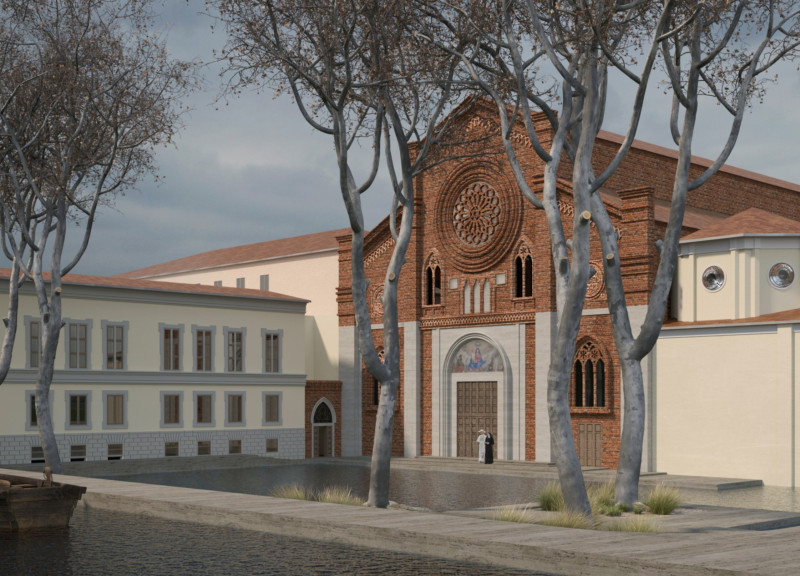5 key facts about this project
The revitalization project in the Navigli area of Milan focuses on integrating local production systems into the existing urban environment. Situated along historic waterways, the design aims to enhance community interaction and promote sustainable practices. The overall concept emphasizes decentralization, fostering connections between urban spaces and encouraging engagement among residents.
Da Vinci Playground
The design incorporates a new public space that draws inspiration from Leonardo da Vinci’s water machines. This playground turns the city entrance into a lively area for exploration and play, allowing people to connect with the region’s rich cultural heritage. By blending history with modern interaction, the design aims to invite residents and visitors to discover and engage with their surroundings.
Carbon Farm
Positioned beneath the Bosco Verticale, the Carbon Farm makes use of Miscanthus, a plant that efficiently captures carbon dioxide. This integration of greenery into the urban landscape is intended to improve overall air quality. The initiative highlights the importance of local ecological efforts and encourages the community to participate in sustainability practices. It serves as a reminder that urban environments can promote both living and breathing spaces.
Local Hydroelectric Power Plant
The Local Hydroelectric Power Plant harnesses the flowing waters of the Navigli to provide renewable energy. This facility addresses present-day energy needs while promoting awareness of sustainable living. By using natural resources to produce power, it contributes to a reduced carbon footprint and demonstrates how cities can become more energy-conscious.
Saffron Plantation
The Saffron Plantation enriches local agriculture and connects residents with culinary traditions. By introducing saffron cultivation to the urban context, the design promotes biodiversity and offers opportunities for hands-on involvement in the production process. This initiative emphasizes the significance of local food practices and supports the region’s culinary identity.
The Stone Cutting Workshop represents a commitment to craftsmanship and tradition within the project. This space allows for the production of stone products, essential elements in modern buildings. By showcasing local artisanship, it reinforces the connection to the Navigli area and illustrates how historic techniques can coexist with contemporary design.






















































